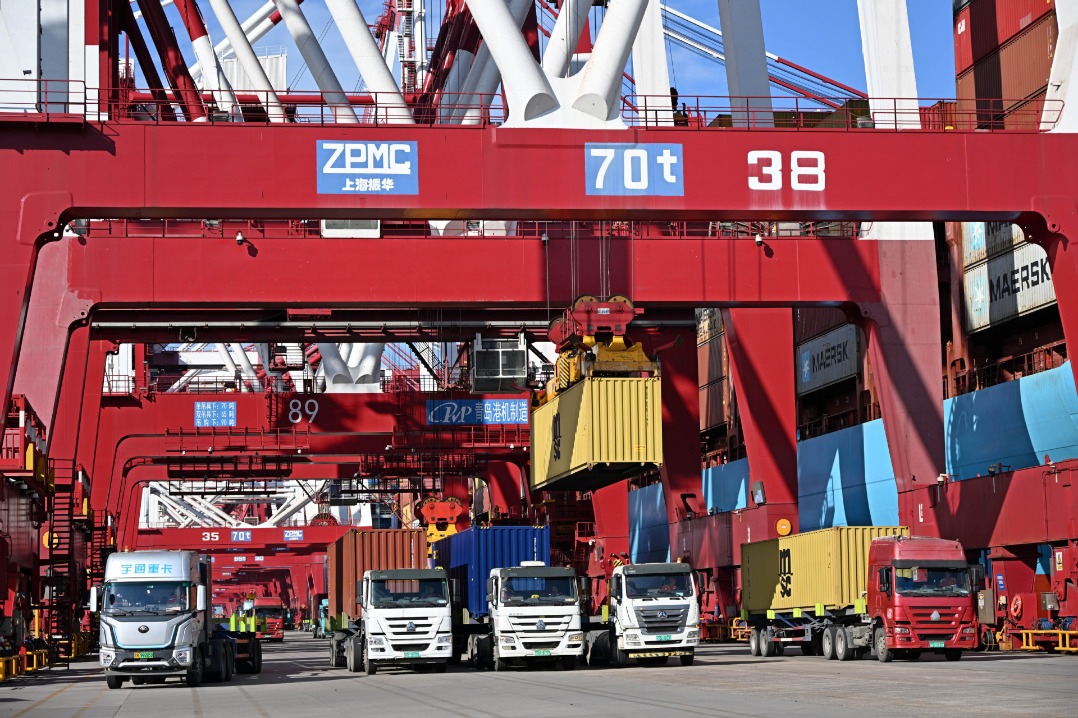German firms make beeline for China market

NANJING/BERLIN — Philipp Kortum, chief financial officer of TUV Rheinland, a renowned German testing and certification services provider, was astounded by the swift completion of its Phase II laboratory in Taicang, a county-level city in East China's Jiangsu province.
Completed six months ahead of schedule, the Yangtze River Delta Operation Hub in Taicang, now TUV Rheinland's largest lab, encompasses a wide array of businesses, from photovoltaics and new energy vehicles to textiles.
Neighboring Shanghai, Taicang, spanning approximately 800 square kilometers, is known as the "hometown of German enterprises" in China, with over 530 German enterprises flocking here.
Beginning in the early 1990s, Taicang spent 14 years attracting its initial 100 German investors, but it only took the city a mere two years to log another 100 German enterprises, from the 400th to the 500th.
In the second quarter of this year, foreign direct investment from Germany into China reached 4.8 billion euros ($5.3 billion), nearly double the amount recorded in the first three months, bringing the total for the first half to 7.3 billion euros. By comparison, the total investment stood at 6.5 billion euros in 2023, as reported by the Financial Times, citing data from Germany's central bank.
In April, BMW announced an additional investment of 20 billion yuan ($2.82 billion) in its Shenyang production base, following two decades of rapid expansion in the northeastern Chinese city. In 2023, the BMW Group delivered over 820,000 BMW and BMW Mini vehicles in the Chinese market.
This investment will be allocated to upgrading and technologically innovating BMW Brilliance Automotive Ltd's Dadong plant.
"The planned investment not only reflects our confidence in China's long-term economic prospects, but also in the innovation capabilities of our Chinese partners," said Oliver Zipse, chairman of the board of management of BMW AG.
"German companies approach investment decisions with a strong focus on market potential and profitability, carefully analyzing global markets to identify regions with the highest opportunities and growth potential," said Zheng Chunrong, director of the German Studies Center at Tongji University.
Michael Schumann, chairman of the board of the German Federal Association for Economic Development and Foreign Trade, emphasized that what previously had to be imported from Germany or other parts of Europe is now sourced from China. This shift has led to the creation of production models such as "In China, For China" and "In China, For the World".
"Over 90 percent of German leading global companies have partnerships with China. Any company aspiring to lead in the global market must collaborate with China," said Walter Doring, chairman of the Academy of German Hidden Champions.
German firms embedded in the Chinese market face bright prospects and continued growth opportunities that will enhance competitiveness worldwide, Doring added.
"In our many years of working with German companies, we have found that they place great importance on the stability of China's business environment and prefer to formulate their own development plans based on the long-term planning of the Chinese government," said Wang Xiangyuan, Party chief of Taicang.
Xinhua




































